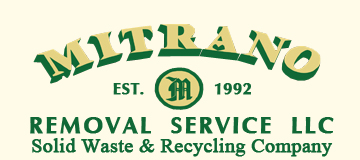 When medications are no longer needed it’s important to dispose of them properly to help reduce the possibility of accidental exposure or intentional misuse. Below, are some options and special instructions for you to consider when disposing of expired, unwanted, or unused medicines.
When medications are no longer needed it’s important to dispose of them properly to help reduce the possibility of accidental exposure or intentional misuse. Below, are some options and special instructions for you to consider when disposing of expired, unwanted, or unused medicines.
Consumers and caregivers should remove expired, unwanted, or unused medicines from their home as quickly as possible to help reduce the chance that others may accidentally take or intentionally misuse the unneeded medicine.
Medicine take-back programs are a good way to safely dispose of most types of unneeded medicines. The U.S. Drug Enforcement Administration (DEA) periodically hosts National Prescription Drug Take-Back events where collection sites are set up in communities nationwide for safe disposal of prescription drugs. Local law enforcement agencies may also sponsor medicine take-back programs in your community. Likewise, consumers can contact their local waste management authorities to learn about medication disposal options and guidelines for their area.
Another option for consumers and long-term care facilities, such as nursing homes, to dispose of unneeded medicines is to transfer unused medicines to collectors registered with the DEA. DEA-authorized collectors safely and securely collect and dispose of pharmaceuticals containing controlled substances and other medicines. In your community, authorized collection sites may be retail pharmacies, hospital or clinic pharmacies, and law enforcement locations. Some authorized collection sites may also offer mail-back programs or collection receptacles, sometimes called “drop-boxes,” to assist consumers in safely disposing of their unused medicines.
If no medicine take-back programs or DEA-authorized collectors are available in your area, you can also follow these simple steps to dispose of most medicines in the household trash:
- Mix medicines (do not crush tablets or capsules) with an unpalatable substance such as dirt, kitty litter, or used coffee grounds
- Place the mixture in a container such as a sealed plastic bag
- Throw the container in your household trash
- Scratch out all personal information on the prescription label of your empty pill bottle or empty medicine packaging to make it unreadable, then dispose of the container.
The FDA publishes a list of medicines you should flush down the sink or toilet when they are no longer needed to help prevent danger to people and pets in the home. Flushing these medicines will get rid of them right away and help keep your family and pets safe. You can obtain the list at www.fda.gov
Consumers can visit the DEA’s website for more information about drug disposal, National Prescription Drug Take-Back Day events and to locate a DEA-authorized collector in their area. Consumers may also call the DEA Office of Diversion Control’s Registration Call Center at 1-800-882-9539 to find an authorized collector in their community.
Household cleaner disposal
People don’t typically dispose of cleaning products – they use them up. Empty packages can then be recycled or discarded with other household waste. Unused amounts of cleaning products can generally be safely disposed of down the drain or in the trash. That’s not the case with all products found around the home. For those products that do require special handling, such as solvent-based paints, used motor oil and certain pesticides, household hazardous waste collection programs are an important resource.
However, cleaning products do not typically contain ingredients that would harm the environment in the quantities that are disposed of by households. The vast majority of cleaning products are water soluble and are formulated for safe disposal in either municipal or home wastewater treatment systems. Household hazardous waste programs are intended to handle products that may cause a problem if disposed of by common methods, such as down the drain or in the trash. Most household cleaning products, though, are designed to go down the drain as part of normal usage. They are then treated by the same systems that treat other wastes from your home.
The way that makes the best environmental and economic sense is to use it up! If you can’t, consider giving the product to a friend or organization that can. Just be sure to keep the product in its original container with the label intact.
If you have any questions about waste disposal, contact the waste experts at Mitrano Removal Service – if it’s something we can’t handle, we know who does.
